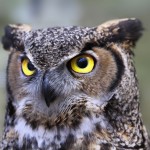 The final lines of a poem I read last week haunted me, as only certain references to the beauty and truth of nature can. The poem titled Night in the Mountains is by Heather Allenand. It came across my desk via the Writers’ Almanac on June 4, 2014. I’ve embedded a link here so you can spend a few minutes reading it; very short and special. The lines that stayed with me afterwards weren’t the most stunning ones, incorporating internal rhymes or invoking the colors of the mountains at dusk. Those impressions, sounds, and sights are obviously still with me in gentle, unspecific ways. But the poet’s reference to ‘The owl’s single note, And the coyote’s cry’ at the end kept turning in my mind, bringing up first a bull frog’s lone voice as he called out to me last weekend from the leaves beside the pond, and then all sorts of other seemingly disconnected thoughts. What else is poetry for?
The final lines of a poem I read last week haunted me, as only certain references to the beauty and truth of nature can. The poem titled Night in the Mountains is by Heather Allenand. It came across my desk via the Writers’ Almanac on June 4, 2014. I’ve embedded a link here so you can spend a few minutes reading it; very short and special. The lines that stayed with me afterwards weren’t the most stunning ones, incorporating internal rhymes or invoking the colors of the mountains at dusk. Those impressions, sounds, and sights are obviously still with me in gentle, unspecific ways. But the poet’s reference to ‘The owl’s single note, And the coyote’s cry’ at the end kept turning in my mind, bringing up first a bull frog’s lone voice as he called out to me last weekend from the leaves beside the pond, and then all sorts of other seemingly disconnected thoughts. What else is poetry for?
Even though the bull frog’s call for his mate might suggest I’m resonating to the Song of Solomon and its ‘voice of the turtle’ inspired by the arrival of spring, the truth is something quite different. The poem focused my attention on the singularity of the cry—that lone voice expressing so much in the human condition. Yes lone, but not lonely; for the owl, coyote and frog are all saying ‘here I am’ in a most profound way. Thinking about those days this time of the year, but oh, so long ago, when school’s end was in sight, and social events marked the countdown to graduation, I couldn’t help feeling the twinge of isolation that came with ‘not belonging’. As common as we know that is in retrospect, at the time it seemed devastating to be (or assume I was) left out of one or all of the cliques defining social parameters in my adolescent life. Some of us were certainly not surprised to be left out of the ‘in crowd’ since we’d always danced around the edges of acceptance throughout our childhood.
I, for one, never entirely lost my stubborn independence and ‘so what’ attitude in public, but there were plenty of private moments of wishing I belonged; or at least fantasizing about being a teachers’ pet, if not a students’ idol. How could I have forgotten so quickly the joy of being my own hero? I took such pride in who I was when I was six years old, but somehow that sense of self got lost in the culture of disapproval along the way. I’d like to think the confidence was always with me, but the sting of loneliness when I think about those end-of-school days, and even the people associated with them, tells me they must have had an impact that’s still with me.
If only kids at that same place in life, or anyone any age for that matter, could understand as I do now that not belonging is the best place to be. If they appreciated how important their individuality is going to be to their creative selves in later life, they might take real pride in it when it closes them out of the group. Working with a number of creative minds this year and doing research lately for this summer’s creativity retreat, I’ve been repeatedly reminded of the importance of breaking rules and making a life to please oneself rather than others. For what’s more important in the lessons about creativity than applying them to one’s own life? What could be more creative than that?
Perhaps those lonely kids who feel they don’t belong to the clique of choice, and aren’t approved of by the grownups of their spheres, are primed to become the most creative adults of their generation. I wouldn’t be surprised, the more I think about it. I wish people would remind children that hearing the lone voice of a living thing doesn’t mean it’s lonely—but singular and unique and very proud to be. Just listen to the owl’s single note or coyote’s cry.
